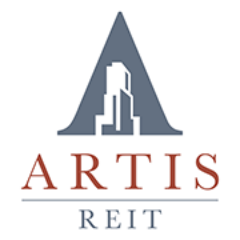
When you imagine an idyllic lifestyle, the vineyards of Northern California are certainly a view that comes to mind. Yet, what makes this picturesque scenery possible is generations of hard work.
Few people know this better than Jon Sebastiani. He had the privilege and responsibility to inherit and manage the Viansa Winery together with his brother Chris – a 4th generation family-run business.
What makes Jon’s story interesting in the startup and entrepreneurship world, however, is that besides successfully managing the family business, he has two other major professional achievements to his name. First, he founded and grew Krave Jerky, leading the company to an exit of $240M to Hershey’s. Second, he founded Sonoma Brands Capital – a private equity fund specializing in innovative growth-stage brands in the consumer sector.
It’s a rare opportunity to sit down and talk to someone with experience sitting on both sides of the table – as a successful entrepreneur and investment fund manager.
In this article, I’ll present a few insights on crafting a successful investment company drawing from my conversation with Jon.
1. Entrepreneurial Experience
When Jon founded Krave, he did so because he saw an opportunity on the market. He was searching for a healthy meat snack alternative that was suitable for long-distance running and didn’t find one that satisfied him.
It wasn’t that different for Sonoma Brands: In Jon’s words: “Through my experience, it was very evident to me that in the consumer sector, most of the investors were finance-oriented. They did not have practical day-to-day experience in building a brand and building a channel strategy.”
Just as he did with Krave, he saw an opportunity on the investor front and decided to use his practical entrepreneurial skills, network, and experience as a competitive edge.
Having entrepreneurial experience provides a dual advantage. Firstly, you understand deeply the problems and struggles of the founders, which means you can offer more added value – not just in the form of practical help to solve problems, but also in the form of empathy and understanding. It’s hard to call yourself a founder-first investor if you haven’t been in the shoes of the founder.
Secondly, it imparts practical knowledge of building an organization, attracting and motivating talent, managing people, and marketing your unique value proposition. On the operational level, a new investment fund isn’t that different from any other entrepreneurial project.
2. The Right Mix of People
Just like any other professional organization, an investment fund is simply a group of people working towards a common goal. In that sense, the biggest factor for success is the quality of the people in the organization.
When finding people for Sonoma Brands, Jon adheres to a well-known startup founder’s rule of thumb: he tries to find people who have the experience and skills he lacks.
While Jon has deep experience in snack foods gained through his creation, growth, and exit of Krave, he didn’t want his investment fund to be limited to just food deals. He attracted to his new organization talents experienced in other consumer sectors – beauty and personal care, fashion, DTC & e-commerce, etc.
As a founder of an investment fund, you need to find people with the right backgrounds, but also the right skill set. Like any business, a private equity fund requires people with specific skills to manage the day-to-day operations.
In the early days of Sonoma Brands Capital Jon handled deal sourcing and managed the relationships with his investors (the LPs), while his partner took care of all the financial compliance and governance, which is crucial for the financial and investment sector.
Down the line, you usually want an HR specialist because as an investor you don’t only need people for the fund, but you need to be able to help your portfolio companies find people in key positions, Jon notes.
Of course, besides the right mix of domain knowledge and skills, you also need the right attitude. A cultural fit is not just crucial for startups – it’s equally important for funds. It might be even more impactful considering the culture of hands-on investors could drip down into their portfolio companies.
In our conversation, Sebastiani mentioned that he is looking for “the skills, the intellect, the personality, the drive to be a partner” even in his junior hires. This, along with the right incentive structure, is what has allowed Sonoma to maintain very little turnover.
3. Relationships & Support
Developing a close-knit, productive team is crucial to success, but for an investment fund, establishing a deep, productive relationship with portfolio companies is equally important.
“We want to be the first phone call when there’s an emergency.” – Jon Sebastiani
This quote summarizes very well the way Jon thinks about this investor-investee relationship.
First, being the first phone call suggests a problem-solving attitude. Sonoma doesn’t expect to be a passive investor – they are ready to get their hands dirty when they need to in order to give their partners an advantage.
Second, being the first phone call suggests a deep level of trust – you’d only call first someone you know would understand your problem and would be able to empathize, not someone you need to justify yourself to (which is often the case in entrepreneur-investor relationships).
Yet, reflecting on the interview, being a hands-on investor is something that comes to Jon not just because of his experience but rather because of his values. When I asked him about his history, he didn’t start with his first venture, but rather with his great-grandfather who founded a wine business, grew to be a successful entrepreneur, and was very active philanthropically in his community.
In that sense, on a deeper level, it seems that the real satisfaction and fulfillment in having an investment fund comes from supporting the people around you to succeed. Having this deeply within you cannot be faked, and it translates easily into becoming the first person people call when they need support.
The investment business is not easy. Even with his stellar background, Jon had to support Sonoma Brands out of his own pocket in the early years. It’s also not a 9 to 5 job. The price of being a hands-on investor is that supporting your portfolio companies is extremely demanding. If there is an emergency on Christmas, you must drop everything you’re doing and commit to solving the problem.
This isn’t something you would be willing to put up with if you’re only after a paycheck. You need to have an inner drive to see your partners succeed.
And if you do, and when they do, being part of an investment fund could be one of the most rewarding jobs – both financially, and on a deeper level of professional fulfillment.




